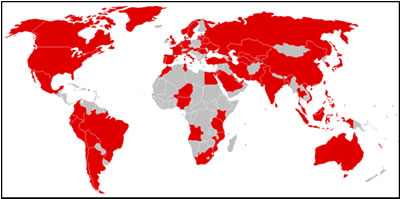Mobile malware has been the threat that has provided the most money to cybercriminals in recent times, as attacks through this malicious software are able to remain hidden for longer periods of time, compared to attacks against computers (ransomware). This is the conclusion drawn by experts from the security firm Check Point, who point out that Judy, a virus that infected millions of Android smartphones last year, thanks to its presence in more than 40 applications of the Play Store, remained operational during one year, while WannaCry, for example, did not exceed the month.




